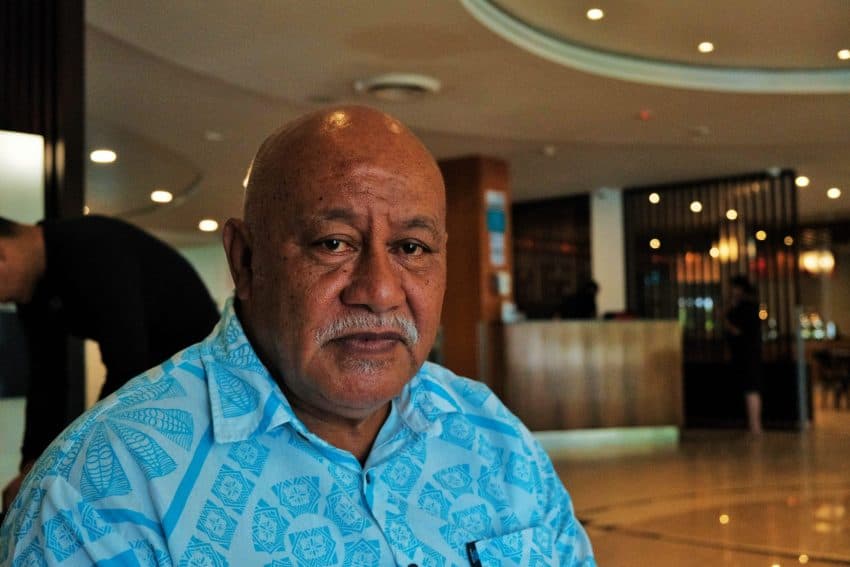It is no secret that the COVID-19 pandemic caused a health crisis throughout globally, but throughout this time, Pacific Islands have also been battling natural disasters, brought on by climate change.
Recognising this, the Red Cross hosted their seventh Pacific Leaders Meeting in Suva recently, welcoming back representatives from 14 branches of the organisation throughout the region.
With a focus on disaster risk reduction and collaboration, the Head of Delegation of the International Federation of Red Cross (IFRC) Katie Greenwood says the event was valuable.
“There’s nothing like in the Pacific being able to come together sit down and have proper talanoa sessions and focus on the challenges and opportunities we have as … organisations working across the Pacific together.”
Despite having 14 Red Cross societies in the region, Greenwood says to be as prepared as possible for when disasters occur, more communication is needed.
“[The network of Red Cross societies] is massively important… we all need to work in coordination.”
“If you’re experiencing something, chances are other people have experienced it before you and they’ve dealt with it. We have heaps of best practice to draw on and heaps of global wisdom to draw on. So, it is really important that we don’t waste time reinventing the wheel.”
The best practice Greenwood is referring to, changes depending on where a disaster occurs and what type of disaster it is – a tsunami response for instance, will be managed differently to that of an earthquake. For Greenwood though, preparation is always key.
“Best practice we have found around Tonga, is preparedness first and investing in people, systems, processes, having prepositioned stock in place so that you can just go straight to [if something happens] making sure that the knowledge and the skills are in place.”
“In the Pacific we sometimes can be seen as a place that needs a lot of help or needs to take best practice from somewhere else, but we’ve been discussing how best practice has been invented and developed here to address the needs in the Pacific that can advise people in other places.”
Drew Havea, the Vice President of Red Cross Tonga believes Pacific Islanders are well versed in disaster management and now operate like “a well-oiled machine.”
He has first-hand experience testing this best practice, remembering the challenges following the volcanic eruption in his home country just over a year ago.
“I was in my small little farm when the explosion happened.”
“About half an hour alter the ash started coming. It was like snow, black snow coming down.”
“[I was] just trying to get to my house. It wasn’t easy, the [car] windshield [wipers] could not handle the amount of ash coming down. I’m on the waterfront [so] when I got home, the water was already in the house up to my ankle. The second wave came, and it came up to my knees, I decided it was time to move out.”
It wasn’t the water the frightened Havea, but the possibility of electric shocks.
“I was more afraid of electricity, I’ve seen water, lots of water.”
Shortly after the eruption and tsunami shook the country, Havea says Red Cross teams were moving out across the islands, providing supplies and support to a resilient community. Unfortunately, the Pacific has become leaders in disaster response because they’ve been forced to endure so many.
“We’ve done it so many times… in the last eight years we’ve had four huge cyclones and then this one with the tsunami and the volcanic ash.
“I think it’s just trying to make sure we’ve covered everybody and make sure we don’t leave anyone behind.”
Continually preparing for increasingly more common natural disasters isn’t sustainable however, no matter how much collaboration or best practice is deployed – and to address root causes, Greenwood says it will have to be a joint effort.
“There are some big goals that we need to tackle that doesn’t involve Red Cross having the solution, but working with government and other civil society and other implementation partners… and that’s getting the money for working on things like climate change to the right people in the right places.”
